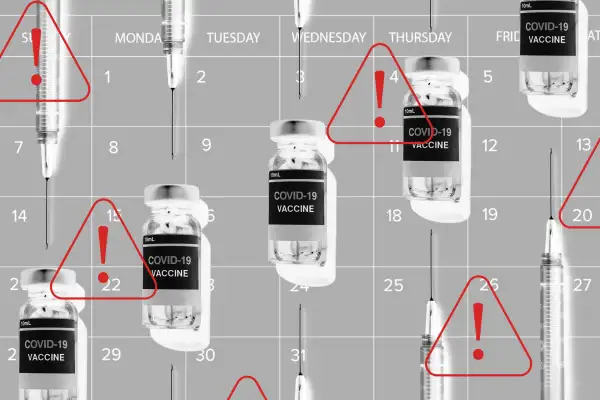Are You Actually Signing up for a COVID-19 Vaccine Appointment or Just Getting Scammed?

A text saying that you’re eligible for a COVID-19 vaccine could be a huge source of relief. It could also be a dangerous scam.
The vaccine rollout is underway with more than 68 million doses administered in the U.S., according to the Centers for Disease Control and Prevention. But while that’s reason to celebrate, be wary of scammers using this as an opportunity to squeeze you for money or personal information.
Here’s how it works: You receive a text, call, email or social media message claiming you're eligible for the vaccine (or can put your name on a waiting list, get early access, etc.). Often, these messages seem to come from a legitimate source, like the email address of a health care provider. But there’s always a catch: you need to pay upfront or provide personal information.
The frantic vaccine rollout has created a "perfect storm for scammers," says Sandra Guile, a spokesperson for the Better Business Bureau (BBB). Much of the information we're receiving changes constantly, and varies from state to state. In some locations, people of certain ages and occupations, and people with specific underlying conditions are able to get vaccinated — in others, they’re not. It’s hard for people to know what’s accurate and who to trust, and scammers are using that to their advantage, Guile says.
Now, local governments across the country are warning residents about potential scams. People in Michigan and West Virginia have been getting suspicious calls urging them to share personal and financial information in exchange for phony vaccine appointments. Floridians recently found fraudulent vaccine scheduling pages on Eventbrite, an event management platform some legitimate health departments have tapped for appointments.
Bad actors are "taking advantage of people's fears and confusions," says Colleen Tressler, a senior project manager in the Federal Trade Commission’s (FTC) division of consumer and business education.
Since the beginning of the pandemic, the FTC has already received nearly 365,000 COVID-19-related reports, including for identity theft and fraud, resulting in over $350 million in consumer losses.
With just a little information, scammers can open up new credit cards, utility accounts, or phone plans in your name. They can also file your taxes before you get the chance to (often forcing you to miss out on your refund). And if scammers get hold of your Social Security number, it can open you up to a long-lasting threat of identity theft.
If you receive what you suspect to be a phony COVID-19 vaccination message, don’t click on any links or download any attachments, and don't share any personal or financial information. If it’s a call, just hang up.
Overall, the FTC says to keep three things in mind: You can’t pay to get your name on a list for the vaccine, you can’t pay for early access and nobody legitimately offering you the vaccine will ask you for your Social Security, credit card or bank account number ahead of time.
Reach out to a trustworthy source of vaccine information, like your doctor’s office, pharmacist or state and local health departments. And if you get a scam vaccine offer, you can report it to the BBB and FTC.
More from Money:
A New IRS Tool Lets You Protect Your Tax Refund — and Your Identity — From Scammers
Please Stop Posting Pictures of Your COVID-19 Vaccination Cards on Social Media
Tax Scammers Are Getting Sneakier. Here's How to Spot the Latest Cons
